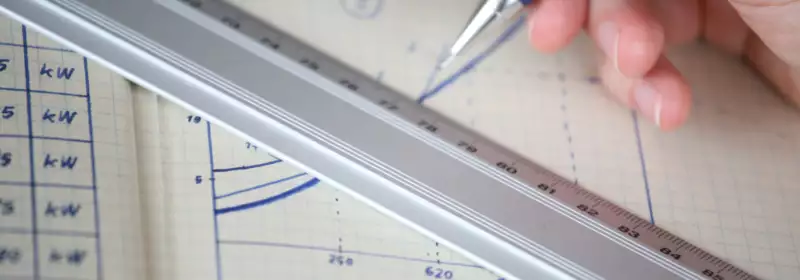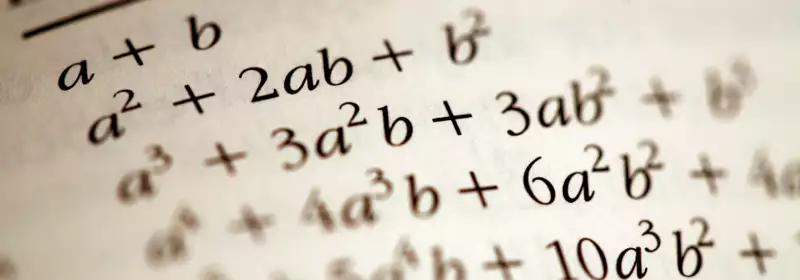While GCSE Maths will give you the foundational understanding of the core theories and principles of mathematics, A-Level Maths delves into much greater depth. You will be challenged to gain a comprehensive understanding, allowing you to solve complex problems and to independently develop and put forward your own mathematical arguments.
Where scientists hypothesise and work with results based on theories, mathematicians deal only in absolute facts. For them, it is essential to find proof and connect the dots. Their ability to undertake intricate data analysis to solve complex problems is undeniably valuable. Applying their mathematical mindset and tenacious attitude ensures their work is rarely retracted at a later stage, unlike theories from science which can be revised or disproven.
Because of this, competent mathematicians are in demand in many industries. Their skills are considered critical in modern business, industry and technology and they are often leaned on by other specialists for insight, such as economists and engineers.
Maths is one of the biggest facilitating subjects, essential for numerous university courses and careers. By choosing to study mathematics, you will develop a mindset that will be a great asset to you in life. You’ll also receive a qualification that can unlock opportunities that would otherwise have been unavailable to you.

The A-Level Maths Course
A-Level Maths is designed to help you develop your mathematical skills and understanding in order to build confidence in key areas of mathematical thinking. The course aims to help you see the links between different areas of maths and the ability to apply your skills across all areas.
By studying A Level Maths, you will develop a superior understanding of key methodologies. You will be introduced to advanced principles and will significantly build on previous knowledge gained at GCSE level.
Throughout the course, you will be tasked with constructing and presenting mathematical arguments. You will do so by using diagrams, graphs, logical deduction and precise statements effectively to communicate your point.
You will learn algebra, exponentials and logarithms, geometry, sequences and series, among many other intricate topics. In recognising underlying mathematical structures, you will be able to simplify and abstract data. From this, you will be able to build detailed arguments that allow you to solve problems in a variety of contexts.
You will undertake three paper examinations in May/June. Each assessing various subject areas from the course. All three will be written two-hour exams, with the option to gain 100 marks, and each will account for 33.3 % of your final A level grade.
They will all contain a mixture of short, single-mark questions and multi-step problems.
Your successful completion of the course materials and exams will demonstrate your ability to think analytically, rationally and with reason. Recognising problems, their causes and identifying numerous conceivable solutions.
After receiving your qualification, you will have the option to study further at university.

The Topics You Will Study
Algebraic manipulation
Using a variety of algebraic methods, you’ll work with mathematical expressions, equations and functions in order to solve a wide variety of problems.
Graphs and inequalities
Studying algebraic equations and expressions by considering related graphs will allow you to build a deeper insight into their behaviours.
Straight lines and circles
Straight lines and circles are two of the most common ways that maths is used to model real life situations. Being able to work with these algebraically will allow you to solve both abstract and real-world problems.
Binomial expansions
When a power is applied to a bracket, the resulting expression can be difficult to simplify using straightforward algebraic manipulation. The laws of binomial expansions provide a powerful tool to enable you to do this.

Proof
A proof shows that a mathematical statement is true – starting from elements that are fundamental truths, and taking a series of logical steps, complicated relationships can be shown.
Differentiation
Differentiation is the process of finding the derivative, or rate of change of a function. It is a powerful tool which enables you to solve problems about the shape of graphs, as well as about the rate at which real-world values change.
Integration
Integration is a tool which enables you to find the area underneath a graph. Expanding upon it, you can learn to calculate areas and volumes in complicated real situations.
Exponentials and logarithms
The exponential function and the natural logarithm are important functions which are inverses of each other. Modelling exponential growth or logarithmic decline has applications to interest rates, viral infections and population growth, amongst other important areas.
Sequences and series
A sequence is a list of numbers which obeys a specific rule, and a series is what we get when we add together the terms of a sequence. The tools you’ll develop in this area have wide applications, including applications to the nature of infinity.
Trigonometry
Trigonometry is the study of the relationships between sides and angles in triangles. Since triangles can be added often to theoretical problems such as sketches of graphs, as well as to real-world situations, trigonometry is a powerful tool with a wide range of applications.

Numerical methods
While algebraic tools can be used to solve a wide range of equations, there are times when an approximation is all that is needed, or where the time required to solve a problem algebraically is inefficient. Numerical methods give us tools to approximate in these situations.
Statistical sampling
Statistical sampling is the process where a predetermined number of observations are taken from a larger population, allowing us to state general facts about the population with some degree of certainty.
Interpreting and presenting data
The interpretation and presentation of data in an accurate and easy-to-understand way is an important tool for science and most other academic areas, as well as aiding the daily interpretation of facts and figures presented in the news, for example.
Probability and statistical distributions
Probability measures how likely something is to happen. Statistical distributions provide formulas to allow us to calculate probabilities efficiently in a range of situations.
Statistical hypothesis testing
Testing the significance of a proposed relationship between two parameters and deciding whether this is significant is a key part of most scientific investigation.
Kinematics
Kinematics is the study of the movements of points, lines and other geometric objects to describe movement.
Forces and Newton’s laws
The relations between the forces acting on a body and the motion of the body are key concepts in both theoretical and applied physics.
What You Will Learn
Through studying A-level Maths, you will develop skills that will be beneficial across your working and personal life.
The work you will undertake will make you adept in designing and conducting observational and experimental studies. You will know how to approach problems analytically and rigorously, formulating theories and applying them to direct your research.
From this, you will be able to confidently investigate, analyse and interpret data, identifying patterns and drawing conclusions that could help shape the decisions of businesses you work with.
Your advanced understanding of information technology and numeracy and your ability to analyse large quantities of data will help you in all paths of study. Not to mention, these skills will improve your confidence in real-life situations where they are involved.
You will also be comfortable when dealing with abstract and diverse concepts. Thinking logically and critically, while presenting arguments and conclusions with accuracy and clarity.

Where You Can Take A-Level Maths
By studying maths, you develop skills which are valued by employers across many job sectors. The level and type of role you wish to work in will determine your need for higher education.
Some maths-related careers such as operational research, medical statistics in pharmaceutical companies and meteorology, may require you to study at master’s level for example. As a STEM subject, maths is highly favoured for many undergraduate courses, giving you a great platform to work your way towards these and many other exciting careers.
As there is great demand for mathematicians and statisticians across a range of sectors, you will have plenty of potential careers paths available to you.
Jobs directly related to mathematics qualifications include:
- Acoustic consultant
- Actuarial analyst
- Actuary
- Astronomer
- Chartered accountant
- Chartered certified accountant
- Data analyst
- Data scientist
- Investment analyst
- Research scientist (maths)
- Secondary school teacher
- Software engineer
- Sound engineer
- Statistician
Jobs where a mathematics qualification would be useful include:
- CAD technician
- Civil Service fast streamer
- Financial manager
- Financial trader
- Game designer
- Insurance underwriter
- Machine learning engineer
- Meteorologist
- Operational researcher
- Private tutor
- Quantity surveyor
- Radiation protection practitioner
- Software tester

Why Study an A-Levels Online Course?
Should you be looking to study maths at A Level, doing an online course provides you the flexibility to learn around your current lifestyle. You don’t have to make any drastic changes to allow you the time to study at a physical college. With distance learning, you can study from the comfort of your own home at a time that works for you.
What’s more, with no physical classes to attend and the course materials readily available online, you can complete the course as quickly as you like. Many of our students qualify and are applying to university within a year.
Just bear in mind the time of year you enrol, as if this is too close to your exams, you may have to sit them the following year.
If you are looking for a flexible alternative to traditional study that allows you to continue working or adhering to other commitments, you should consider online study. With flexible payments methods available, distance learning is becoming the obvious choice for those wanting to get back into education.
learndirect is a leading provider of online courses in the UK. Click below to view our A-level Maths course in more detail and enrol online today.



















